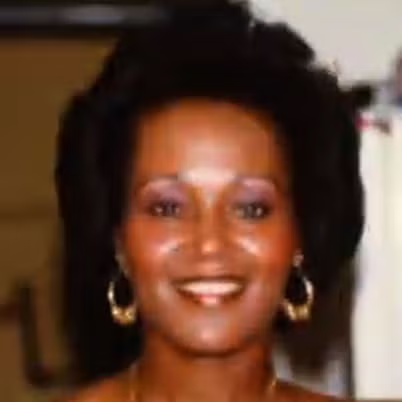
Table of Contents
Who Was Thelma Wright?
Thelma Wright emerged from a challenging background, ultimately making a significant impact in her community and beyond. She met her husband, Jackie Wright, a prominent figure in the Philadelphia drug trade, during her early twenties. Following her husband’s tragic murder, Thelma faced a pivotal decision: to rebuild her life within the bounds of the law or to continue in the family’s illicit business. Enticed by the promise of quick wealth, she chose to transport cocaine and heroin between Los Angeles and Philadelphia. However, the realities of the drug trade proved to be far more perilous than she anticipated. In 1991, Wright decided to leave her life of crime behind and later chronicled her experiences in her memoir, With Eyes From Both Sides: Living My Life In and Out of the Game, published a decade later.
Early Life
Thelma Wright was raised in a nurturing environment, growing up in a loving Catholic family in South Philadelphia. She attended St. Maria Goretti High School before pursuing higher education at Temple University, where she studied real estate management. As detailed in her memoir, Wright eventually relocated to Los Angeles, California, where she embarked on various business endeavors, including the establishment of Jackiem Enterprises, Inc., a clothing design company founded in the late 1980s. After several years in Los Angeles, she returned to her roots in Philadelphia, driven by a sense of homesickness.
The Life of Crime Begins
In 1977, at the age of 23, Thelma Wright encountered her future husband, Jackie Wright, a significant figure in Philadelphia’s drug trade and one of the city’s foremost heroin wholesalers. Jackie had established connections with the Black Mafia, a notorious gang recognized for its violent tactics, including the assassination of law enforcement officials. In 1982, Thelma and Jackie welcomed their son, Jackiem, into the world.
Tragedy struck in August 1986 when Jackie was brutally murdered; his body was discovered with a gunshot wound to the head, rolled up in a rug. Faced with the abrupt loss of her partner, Thelma was confronted with a pivotal decision: to either rebuild her life on a lawful path or to take over Jackie’s illicit enterprise. Reflecting on her husband’s dedication, she stated, “He took care of us, loved his son. If he was around, nothing could happen.” Despite the challenges, she chose to continue the business, asserting, “I got this child. I can’t lay down and die, so we just resumed business as normal. Made a lot of money. A lot of money.”
During the early 1990s, Philadelphia became a hub for drug distribution, particularly for heroin and cocaine. With a newfound sense of purpose and the allure of financial gain, Thelma quickly ascended to leadership of her husband’s operation. She managed a vast organization based in Philadelphia, overseeing the transportation of significant quantities of cocaine and heroin across the United States, specifically between Los Angeles and Philadelphia. Her prominence in the drug trade earned her nicknames such as “Boss Lady” and “Queen Pen.” As she later reflected, “It was about survival. It was about, you know, getting to another level.”
Wright soon began to witness substantial profits from her endeavors, claiming, “I made a lot of money. A lot of money.” She likened her financial success to the iconic phrase from The Godfather, stating, “You know in The Godfather when they say, ‘It’s a lot of money in that white powder’? It was a lot of money in that.” Her financial success was staggering, with estimates suggesting monthly profits of approximately $400,000. However, the lifestyle that accompanied her success was fraught with danger and challenges.
Leaving the Drug Game
In July 1991, Wright and several associates became victims of a gang-related shootout at a popular nightclub, Studio West. Less than two weeks later, she narrowly escaped another perilous situation when a longtime client, known as “Fats,” was arrested after attempting to track a missing package at the Post Office.
By the close of 1991, Thelma made the momentous decision to exit the drug trade permanently. For years, she maintained a low profile and refrained from discussing her past. In 2009, she began working with a nonprofit organization, focusing on managing properties for women facing addiction and mental health challenges. In 2011, she chose to share her story through her memoir, With Eyes From Both Sides – Living My Life In and Out of the Game.
Reflecting on her transformative journey, Thelma expressed, “I am a mother to some, I am a grandmother to the kids. It gives me an opportunity to see some of the destruction behind things that I had done.” She emphasized the importance of her message when speaking to others, stating, “You’re not going to win. It is a ‘no win.’ Two options: death or jail. That’s it. There’s nothing else … Looking back on it now, I did what I did to survive, to take care of myself and my son. Would I do it again? No. No, absolutely not.”
